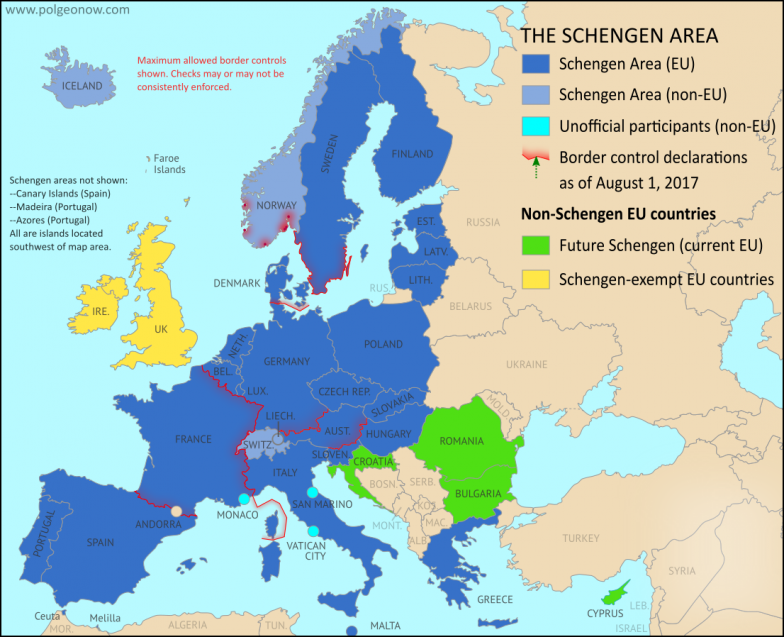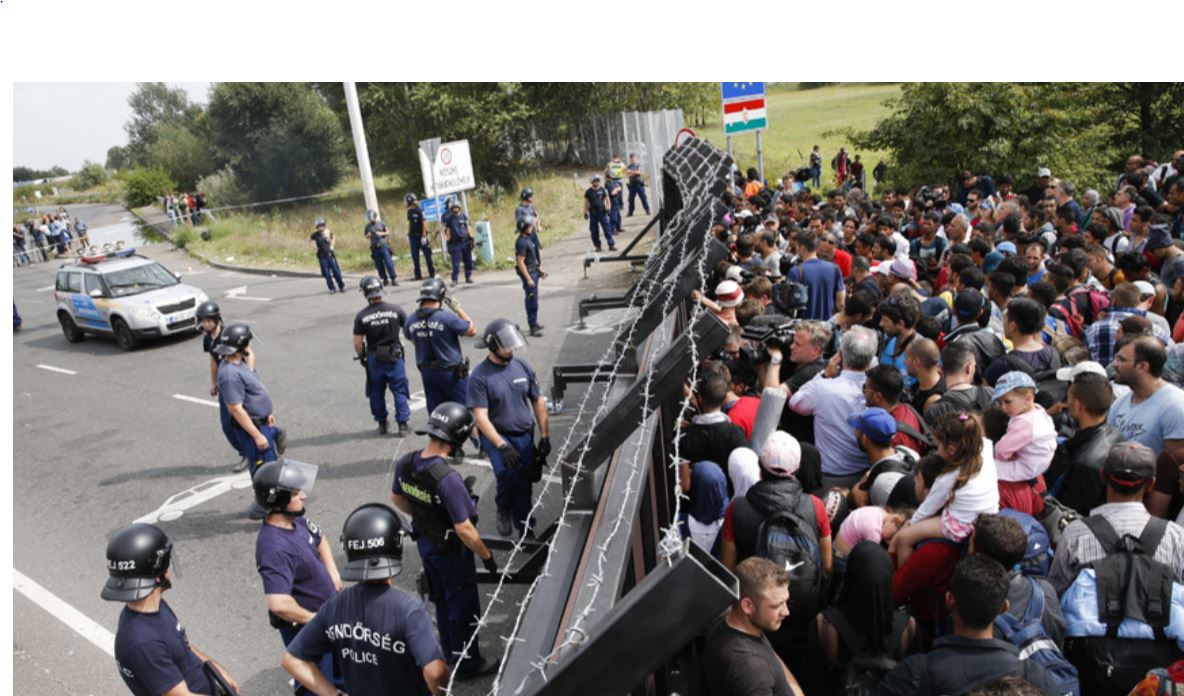Want to see the world? Do it now while you still can. As international tensions rise, borders are closing to travelers across the globe.
 No matter what your political views are, I’m sure you can admit that, with last November’s elections in the United States, international relations tilted on their axis.
No matter what your political views are, I’m sure you can admit that, with last November’s elections in the United States, international relations tilted on their axis.
The results of the U.S. election seem to have opened the floodgates for political turmoil and isolationist policies all over the world.
Examples include Trump’s border wall (which has yet to materialize) and his unlawful travel ban, increased support for the anti-immigration far right party in the recent German elections, and the “temporary” reintroduction of border controls between some Schengen states including France and Belgium.
Add these to what might turn out to be a “no deal” Brexit, tit-for-tat visa suspensions between Turkey and the United States, and politically charged events such as Catalonia’s recent bid for independence, and you have a recipe for disaster for countries whose wellbeing relies on freedom of movement, free trade and tourism.
As Deepak Chopra said, “Globalism began as a vision of a world with free trade, shared prosperity, and open borders. These are good, even noble things to aim for.”
 Those of us who are pre-Millennials remember a time when the antithesis of globalism was the norm.
Those of us who are pre-Millennials remember a time when the antithesis of globalism was the norm.
When I lived in Germany as a teenager, the country was divided into East and West.
I have seen first-hand Checkpoint Charlie with its armed East German soldiers prepared to kill anyone who tried to cross into West Berlin.
This might be a dramatic example to illustrate my point, but it is a tangible reminder that closed borders are the embodiment of ideological conflicts – conflicts which inevitably have long-lasting effects on the general population.
But the ideals of globalism are struggling to withstand the strains of immigration and the negative effects of tourism, which account for as much as 20 percent of the GDP in several European countries including Croatia, Portugal and Greece.
Immigration is a hot-button issue now like it’s always been, but tourism is quickly becoming a touchy subject as well.
Amsterdam is using technology to ease congestion at popular tourist sites, while cities such as Venice, Dubrovnik, and Cinque Terre are trying to combat “overtourism” by limiting the number of daily visitors.
They feel the sheer number of tourists have caused “the quality of life in the area or the quality of the experience” to deteriorate unacceptably.
With each city, region, or country that closes its borders to immigration and/or tourism, the world gets a little smaller, and those of us who want to see it get a little sadder.
So what are you waiting for?
Travel now, while you still can.

BETH
About the author: Beth Hoke is rejoining the expat life after spending her childhood in Europe and the United States, then settling in Chicagoland to raise two daughters.
Now an empty nester, she is roaming Europe, armed with a TEFL certificate and an online position teaching English for EF.
Beth has been traveling around Europe for nine months. She’s filed posts from six countries including Italy, Germany, Croatia, and Madeira, Portugal.














